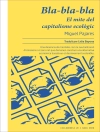Many government agencies still use a traditional model of management which relies on a strong top-down, factory-based approach to motivate employees. This worked well for a while, but research now shows this leadership can easily lead to a slew of human-related problems such as employee disengagement, turf wars, blame-games, bias, poor decision-making, and status quo thinking. These issues can turn into big headaches for managers, undermine policy efforts, and reduce trust in government.
Luckily, Human-Centered Leadership has emerged as a new management method uniquely positioned to counteract these issues by ensuring all employees bring their best selves and their best work to the team. At the same time, Human-Centered Leadership methods provide a cacophony of additional benefits such as improved productivity, quality of work, innovation, collaboration, nimbleness, trust, wellness, inclusiveness, and a deeper sense of belonging. Together, these improvements mean that government institutions become better at attracting and retaining top talent, crafting more effective policies, and implementing new initiatives with much higher rates of success.
The best news is that Human-Centered Leadership is not expensive to implement nor hard to learn. In fact, some early adopters in government positions are already using it to foster high-performing teams and getting great results. This book tells the stories of several of these Human-Centered Leaders and highlights their most successful strategies for creating thriving team culture, fostering more trust with the community, and producing more meaningful outcomes for all.
Mục lục
Table of Contents
Dedication……………………………………………………………………….. iii
Acknowledgements & Co-Authors……………………………………. iv
Introduction……………………………………………………………………… 1
Chapter One
Designing Systems to Support More Choice and Voice
Let’s set the stage………………………………………………………………. 9
Let’s unpack the problem……………………………………………………. 11
Let’s solve this together …………………………………………………….. 19
Let’s wrap it up………………………………………………………………….. 34
Reflective questions for team discussion………………………………. 37
Chapter Two
Building the Infrastructure for Innovation (Through Human-Centered Design)
Let’s set the stage……………………………………………………………… 38
Let’s unpack the problem……………………………………………………. 39
Let’s solve this together …………………………………………………….. 51
Let’s wrap it up………………………………………………………………….. 62
Reflective questions for team discussion………………………………. 64
Chapter Three
Creating a Psychologically Safe Environment
Let’s set the stage……………………………………………………………… 65
Let’s unpack the problem……………………………………………………. 73
Let’s solve the problem together………………………………………….. 78
Let’s wrap it up………………………………………………………………….. 85
Reflective questions for team discussion………………………………. 87
Chapter Four
Paving a Human-Centered Path Towards Equity and Inclusion
Let’s set the stage …………………………………………………………….. 88
Let’s unpack the problem……………………………………………………. 90
Let’s solve this together………………………………………………………. 93
Let’s wrap it up…………………………………………………………………. 115
Reflective questions for team discussion……………………………… 116
Chapter Five
Hiring Leaders with Emotional Intelligence (Using an Equity Lens)
Let’s set the stage…………………………………………………………….. 117
Let’s unpack the problem…………………………………………………… 122
Let’s solve this together……………………………………………………… 130
Let’s wrap it up…………………………………………………………………. 138
Reflective questions for team discussion……………………………… 140
Conclusion……………………………………………………………………… 141
End Notes……………………………………………………………………….. 154
About the Author…………………………………………………………….. 159
Giới thiệu về tác giả
Dara has over two decades of experience facilitating trust-building conversations, conducting research to inform policy, and leading grassroots campaigns for positive change. Dara’s research has been featured in the United Nations, U.S. Congress, Institute for Public Policy Research, and Harvard Education Spotlight Series. Her organizing campaigns for policy change have been touted as outstanding models by Human Rights, White House and State Department leaders. In 2012, she led a global campaign that helped to build trust and develop a common blueprint for positive change across 97 countries. More recently, in response to the mental health crisis spurred on by the COVID-19 pandemic, Dara initiated a campaign to bring more effective communication skills to households around the world. Dara has a Masters with honors in Public Policy from the London School of Economics, and graduated Magna Cum Laude from Barnard College.












